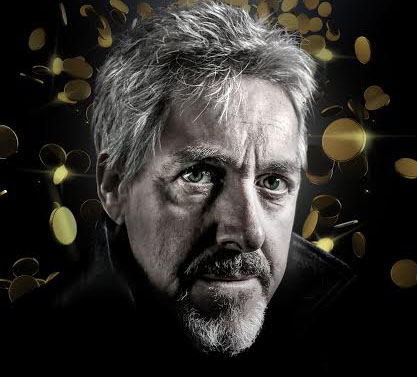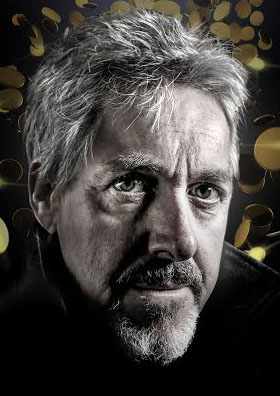
Griff Rhys Jones stars as Harpagon in Moliere’s The Miser which is at the Theatre Royal Bath from 8th to 18th February, in a new adaptation by Sean Foley and Phil Porter, directed by Sean Foley.
What was it about The Miser that appealed to you?
I’ve always found Sean Foley’s high-octane style of comedy very funny. He asked me to do something a long time ago that I couldn’t do but we met up again more recently and we discussed doing some Moliere. What’s especially interesting about The Miser is that it was written in prose rather than verse, and it’s just a really funny piece of writing. Sean and I both found as we’ve got to know it that there are all sorts of comic elements in there; it’s like The Marx Brothers mixed with Commedia dell’arte. Sean and Phil [Porter]’s adaptation is full of big, knockabout, broad humour, which suits me very well.
Is it a challenge to make jokes written in the 17th century resonate with a contemporary audience?
Certainly the audience at the time would have been very aware of the comic traditions. There was a lot of irony around the lovers, for example. I’ve seen a lot of very stylised productions of Moliere, which can feel rather like being at the opera. They can often be heavily literary as well – which means you leave thinking ‘that was very interesting’, but not necessarily laughing very hard. But with this production we’re aiming to remain true to Moliere’s incredible instinct for comedy. I really salute Mark Goucher (producer) and Sean for bringing Moliere back to a West End audience.
Would you say your character of Harpagon, The Miser, is a man of our age?
Absolutely, in that he’s an insecure person with a large fortune. He doesn’t know what to do with it so as a result he hides it away. That certainly speaks to an age of big bankers salting their money away in gold stocks. There’s a sense that he feels rather beleaguered in this big house surrounded by people trying to spend his money. That level of observation is quite interesting. I remember speaking to a banker about why he felt the need to keep acquiring money, and he said it was basically his cricket score.
Does he have redeeming features?
There is a certain plea for sympathy early in the play, in which he asks the audience to understand his position. But he’s undoubtedly a fairly unlikeable character – he’s in many ways the voice of the grumpy middle aged man. With this in mind the play is very observant about family life. There’s an ongoing fight between The Miser and his son, who wants to spend his money. This makes it quite dark, but is the root of much of the comedy. They have a really recognisable family relationship, peppered with very heated arguments. One can certainly sympathise with The Miser for that.
Are you enjoying working with other comics, including Lee Mack and Mathew Horne?
Hugely. It’s been wonderful working with other comedians again and it created a very funny rehearsal room. Despite its title The Miser is very much an ensemble play – you can tell it was written for a company. All the roles are strong and they’re being played by very strong comic performers. I’d better watch out!
You’ve appeared in a number of comic plays, and won two Olivier Awards in the process. Would you call this your natural territory?
In the 80s I did a number of farces, including work by Ben Travers and Dario Fo, and I loved it. There’s an excitement about doing farce on stage that is unique. Television and film has its delights but it can be rather boring with lots of sitting around and waiting. And I do like a joke, so being in plays that are very broad and black in their humour is certainly something I enjoy. I think I won those awards for simply being the broadest on stage!
You recently performed a solo show about your collaboration with Mel Smith. How was that experience?
It was very interesting. I’d never done stand up before, so to be alone on stage for two hours was a really challenging experience. But I loved it, and it was lovely to visit so many locations around the UK. I’ve worked almost continuously in television for a number of years, so it’s been great to get back to live performance. I’m hoping to get back on the road again once I finish in The Miser.
Interview by Theo Bosanquet


